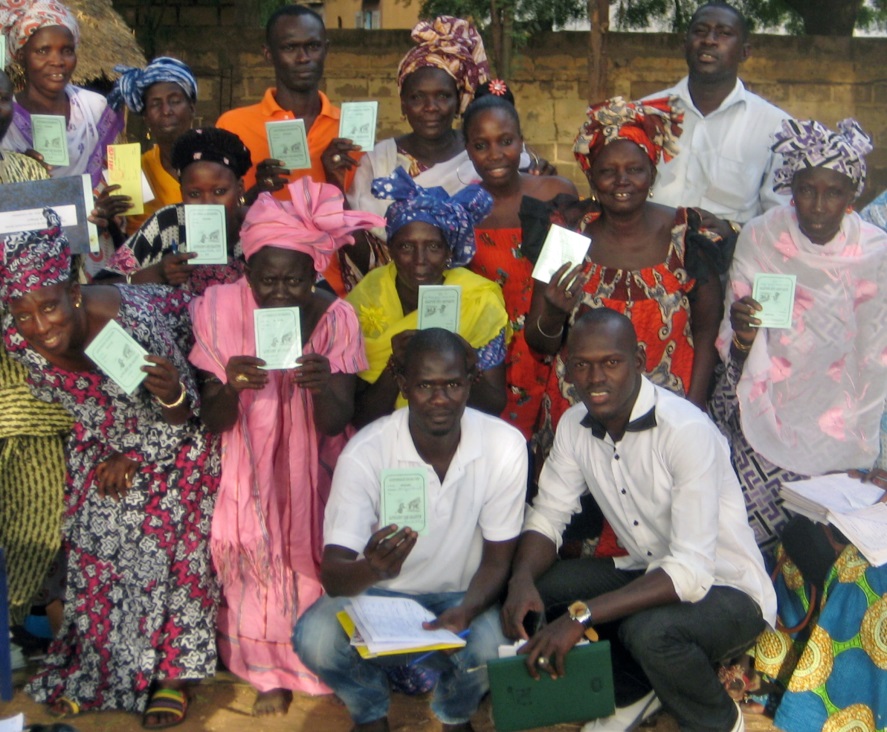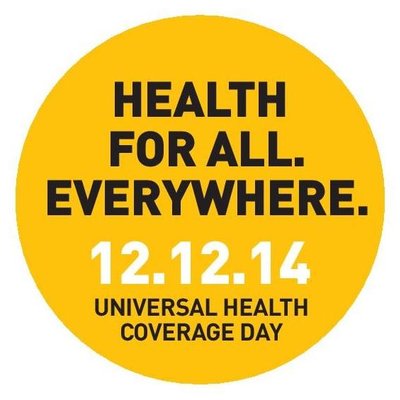Abt Global Supports Countries Working to Achieve Universal Health Coverage

 Abt Global is dedicated to improving the quality of life and economic well-being of people worldwide. As part of this commitment, we are joining in the global launch of the first-ever Universal Health Coverage Day. Abt is one of more than 500 organizations marking the two-year anniversary of the passage of a landmark United Nations resolution urging all countries to provide universal access to quality health care without financial hardship.
Abt Global is dedicated to improving the quality of life and economic well-being of people worldwide. As part of this commitment, we are joining in the global launch of the first-ever Universal Health Coverage Day. Abt is one of more than 500 organizations marking the two-year anniversary of the passage of a landmark United Nations resolution urging all countries to provide universal access to quality health care without financial hardship.
But Abt Global is more than just a champion of the effort to expand universal coverage (UHC). We accelerate countries’ progress toward UHC through technical leadership on health financing, service delivery, and public-private engagement. We bring a comprehensive perspective that engages stakeholders from all sectors and implementing strategies from the community level up to the national level. We have worked since 1985 to design, enhance, implement, and evaluate a broad spectrum of health system reforms to enable countries to improve health sector efficiency, provider performance, service quality, and access for poor and disadvantaged populations. Learn more here.
How does Abt Global support UHC and #HealthforAll? Here are just a few examples of our work:
Advancing Universal Health Coverage in Ethiopia
Healthcare financing plays a critical role as countries work to expand coverage. Health systems must mobilize enough financial resources, protect families from impoverishing costs, and allocate resources efficiently to provide access to quality services. In Ethiopia, USAID’s Health Finance and Governance (HFG) project, led by Abt, is supporting the scale-up of community-based health insurance (CBHI) schemes that provide affordable access to a package of essential health services. In the past year the Ethiopian government decided to expand CBHI from 13 pilot districts to an additional 160 districts.
Read more about HFG’s efforts to expand UHC.
In 2013, there were 793,000 people living with HIV and AIDS in Ethiopia and tuberculosis (TB) was the leading cause of morbidity and mortality. The dual epidemics deplete scarce resources of the already overstretched public health care delivery system and contribute to the attrition of health workers. The Abt-led Private Health Sector Program (PHSP) in Ethiopia has supported more than 300 private clinics to provide TB, HIV and AIDS, malaria and family planning services, which has enabled those clinics to provide HIV counseling and testing to over 1 million clients and to diagnose and treat close to 18,000 TB patients with an 83 percent treatment success rate.
PHSP--developed public-private delivery models for HIV and TB have had a significant impact on coverage and detection rates. PHSP-supported facilities have a detection rate that is twice as high as the rate of public sector facilities.
Using Evidence to Inform Malawi’s Health Finance Strategy
Abt is a global leader in the use of national health accounts, cost analysis, equity measurement, and other economic analyses to inform financing strategies. Abt, through the USAID Support for Service Delivery Integration-Systems (SSDI-Systems) project and in partnership with the Clinton Health Access Initiative and the World Health Organization, is assisting the Malawian Ministry of Health to develop, gain approval for, and operationalize a National Health Financing Strategy for the first time. Read a presentation about this work.
Expanding Coverage and Promoting Sustainability in Ghana
The Health Finance and Governance project is a key technical partner in Ghana’s efforts to achieve UHC. HFG has partnered with the National Health Insurance Agency (NHIA) in Ghana to support the financial sustainability of the country’s national health insurance scheme, while also increasing enrollment and improving effective coverage of quality health services.
Read more about HFG’s efforts to expand UHC.
Supporting Partnerships between the State and Community-Based Health Insurance in Senegal
Community-based health insurance schemes in Senegal have received limited support from the government in the past, but this is changing. Abt, through its USAID-funded Health System Strengthening (HSS) project, has been providing technical assistance to Senegal's Ministry of Health for the development of a strategic plan for universal health coverage. Expanding community-based health insurance coverage has become one of the highest priorities of the government in the health sector.
The Role of the Private Sector in the HIV Response of Four Countries
A recent analysis by the Strengthening Health Outcomes through the Private Sector (SHOPS) project, led by Abt Global, shows that the private health sector could help country governments sustain national HIV responses. Recommendations stemming from the analysis identify opportunities to incorporate private providers and insurers in UHC reforms. SHOPS used national health accounts data to track how HIV funds flow through the health systems in Côte d’Ivoire, Kenya, Malawi, and Namibia, and identified ways that donors and the government can better work with the private health sector.
Watch Sharon Nakhimovsky, a health financing specialist at Abt, explain the national health accounts methodology and why it is an important tool for policymakers and other health systems stakeholders.
Predicting the Costs and Benefits of Universal Health Coverage
Despite a well-developed health insurance industry, known as “medical aid,” only 17 percent of individuals in Botswana have coverage. As a next step in moving toward universal health coverage, the government of Botswana is exploring options for increasing the number of public sector employees enrolled in private health insurance.
Abt, through the SHOPS project, is working to gather and analyze information on the costs and benefits of expanding medical aid coverage to all government employees in Botswana. The findings will provide the government of Botswana with the evidence necessary to shape the design of new policies and insurance products, correctly estimate costs, and ultimately implement its vision for universal health coverage.
Measuring and Monitoring Country Progress toward Universal Health Coverage
Many countries have declared their commitment to achieve UHC and introduced policies and approaches to achieve that goal. However, there are few guidelines for measuring and monitoring countries’ progress toward UHC.
The Health Finance and Governance project conducted case studies in Ethiopia, Cote d’Ivoire, and Senegal to explore how these countries are currently measuring progress toward UHC, and examine each country’s capacity to generate and monitor the World Health Organization’s suggested UHC indicators. The Ethiopia case was recently featured in the journal PLOS Medicine’s newly released Monitoring Universal Health Coverage Collection.
HFG also worked with other partners, including CHAI, MHSP-TA (Options) and the U.K. Department for International Development (DFID), to technically and financially support the Ministry of Health (MoH) in organizing the Third National Health Financing Summit in 2014, which was officially opened by Malawi’s President, His Excellency, Professor Arthur Peter Mutharika.
The MoH presented the National Health Financing Strategy at the summit, which received a high level attention and successfully garnered a government commitment to the strategy. “My government is ready to reform the Malawi health system so that it provides quality and affordable health services accessible to all Malawians,” Mutharika said during the summit.
Read more about HFG’s efforts to expand UHC.
